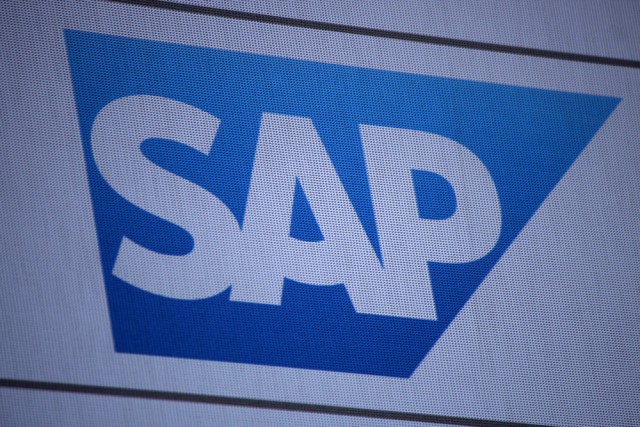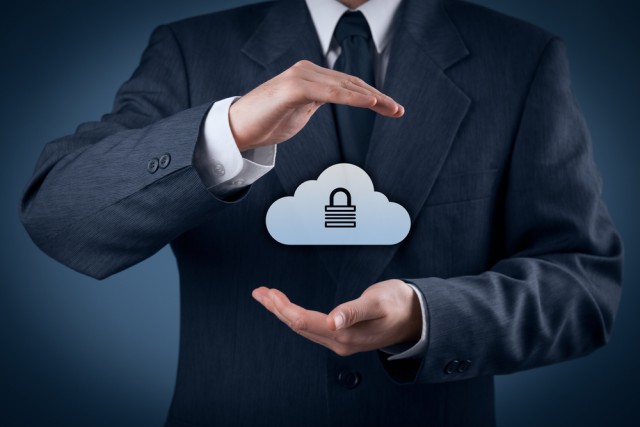
UK IT leaders plan to migrate SAP apps to the cloud in the next two years
Research released today from managed services provider Ensono reveals that 79 percent of UK IT leaders plan to migrate their SAP applications to the public cloud within the next two years.
While the majority of SAP applications are still housed on-premise, 70 percent of those responsible for SAP believe migrating to the public cloud will be more beneficial than keeping it in-house. In fact, 61 percent state that migrating SAP to public cloud is critical for their business success.

Most organizations face challenges when moving to the cloud
Hybrid cloud is increasingly seen as the way to go in terms of business agility, but a new report from Nutanix shows that 94 percent of respondents' organizations have experienced challenges when moving to the cloud.
A majority of respondents also admit to feeling concerns surrounding security (90 percent), reliability (75 percent), cost (72 percent) and/or performance (69 percent) when using public cloud services.

The challenges of hybrid cloud adoption [Q&A]
Cloud is used for all kinds data processing nowadays, but there are still some things that need to be kept in-house, either for performance, compliance or other reasons.
This has given rise to the hybrid model, offering a mix of cloud and on-premise solutions, becoming increasingly popular. We spoke to Derek Taylor, lead principal security consultant at Trustwave, to find out more about the security and supply chain challenges that hybrid adoption presents.

Moving business securely to the cloud [Q&A]
A large majority of enterprises are now using the cloud, but moving to cloud-based solutions inevitably presents challenges, not least in security.
We spoke to Sam Humphries, Security Strategist at SIEM (Security Information and Event Management) specialist Exabeam to get her views.

Analysis of attacks reveals the top threats to cloud computing
Moving systems to the cloud offers many benefits for organizations, but it also opens up a new range of threats.
The Cloud Security Alliance has released a new report looking at case study analyses of recent attacks and data breaches to promote understanding of how attacks work and how they can be successfully mitigated.

Organized attacks on cloud infrastructure and software supply chain increase
A new threat report from Aqua Security reveals a growing, organized and increasingly sophisticated pattern of attacks on cloud native infrastructure.
While most attacks uncovered by Team Nautilus, Aqua's cybersecurity research team, were aimed at abusing public cloud compute resources for cryptocurrency mining, the methods used also open the door for higher-value targets that look to exploit security gaps in container software supply chains and runtime environments.

Size matters when it comes to cybersecurity
Research from Coalfire Labs based on over 800 penetration tests finds that company size has a direct bearing on how effectively a business is able to fend off would-be attackers.
The study shows large and small companies see more than three times the year-on-year improvement of medium-sized companies. Although mid-size companies hit the cybersecurity sweet spot in 2018, they scrambled to keep up last year, and in 2020, improving only four percent year-on-year in fending off attackers compared to their bigger and smaller counterparts.

Zoho launches new platform to boost collaboration and productivity
Business suite company Zoho is launching a new software platform that brings together collaboration, productivity, and communications tools and integrates them into other business processes.
Zoho Workplace is based around a fully-featured business mail and cloud office suite. It includes nine applications built on a common data model and unified through common search and AI across a single dashboard.

New platform helps businesses get the most from data lakes
Data is key to the competitiveness of modern enterprises, but the quality of that data determines how useful it is.
Customer data platform Segment is launching a new data architecture product built specifically to help companies deliver better customer experiences. Segment Data Lakes gives companies a foundation to produce advanced analytics, uncover customer insights, and power machine learning and AI initiatives.

COVID-19 accelerates cloud migration plans
More than half of respondents to a new survey are either accelerating their cloud adoption timeline or moving forward as planned during the COVID-19 pandemic, and this number goes up to 59 percent among respondents considering VMware Cloud on AWS.
The study from multi-cloud data service provider Faction finds that among those organizations where COVID-19 has paused or canceled cloud adoption, the top factors cited are budget pressures (75 percent) along with staffing shortages and macro-economic uncertainty (each named by 41 percent of respondents).

How a cloud-based infrastructure can accelerate IT Initiatives
There’s no doubt about it, we are living in a cloud enhanced world. No matter what is happening in life, whether it’s uploading pictures of the family, keeping track of friends on social media, or working remotely, the fact remains that the cloud is a part of our everyday lives in one way or another.
So why are organizations so hesitant to adopt a cloud infrastructure? From speaking with customers, the reason extends across infrastructure, business as well as, let’s face it, an overall new way of thinking about what is the best way to mitigate risk.

Linux Foundation launches new community for finance professionals
The Linux Foundation is today announcing the formation of the FinOps Foundation to promote the discipline of cloud financial management through best practices, education, and standards
With support from founding members Apptio, Cloudeasier, Cloudsoft, CloudWize, Contino, Kubecost, Neos, Opsani, ProsperOps, Timspirit and VMware, the foundation is set to increase awareness and offer education for professionals in the emerging discipline of FinOps.

Enterprise IT still focused on the long term despite pandemic challenges
While COVID-19 has altered the cloud strategies of enterprise IT executives, the vast majority are still moving forward with their big-picture digital transformation initiatives, and most think they'll see an increase in their cloud budgets to support these projects over the next year.
A new report from professional services and managed cloud company 2nd Watch surveyed more than 100 cloud-focused IT directors or above and finds that 82 percent of respondents say they've experienced cloud-related challenges with 77 percent saying these challenges have caused them to alter their cloud strategies.

Existing security tools struggle with public clouds
The security of public clouds continues to be a major challenge, with 75 percent of respondents to a new survey saying they are 'very' or 'extremely' concerned about it.
The study from Check Point and Cybersecurity Insiders shows 68 percent say their organizations used two or more different public cloud providers, which means that security teams often have to use multiple security tools and management consoles to try to enforce security and compliance across the different environments.

Visits to high risk apps and websites increase 161 percent
There's been a huge shift to remote working this year, but new data shows that there has also been a 161 percent increase in visits to high-risk apps and websites as personal use of managed devices has nearly doubled.
The study from cloud security company Netskope finds that 64 percent of workers are now remote. Along with this increase in remote work has come an 80 percent increase in the use of collaboration apps as remote workers seek to remain connected with their colleagues
